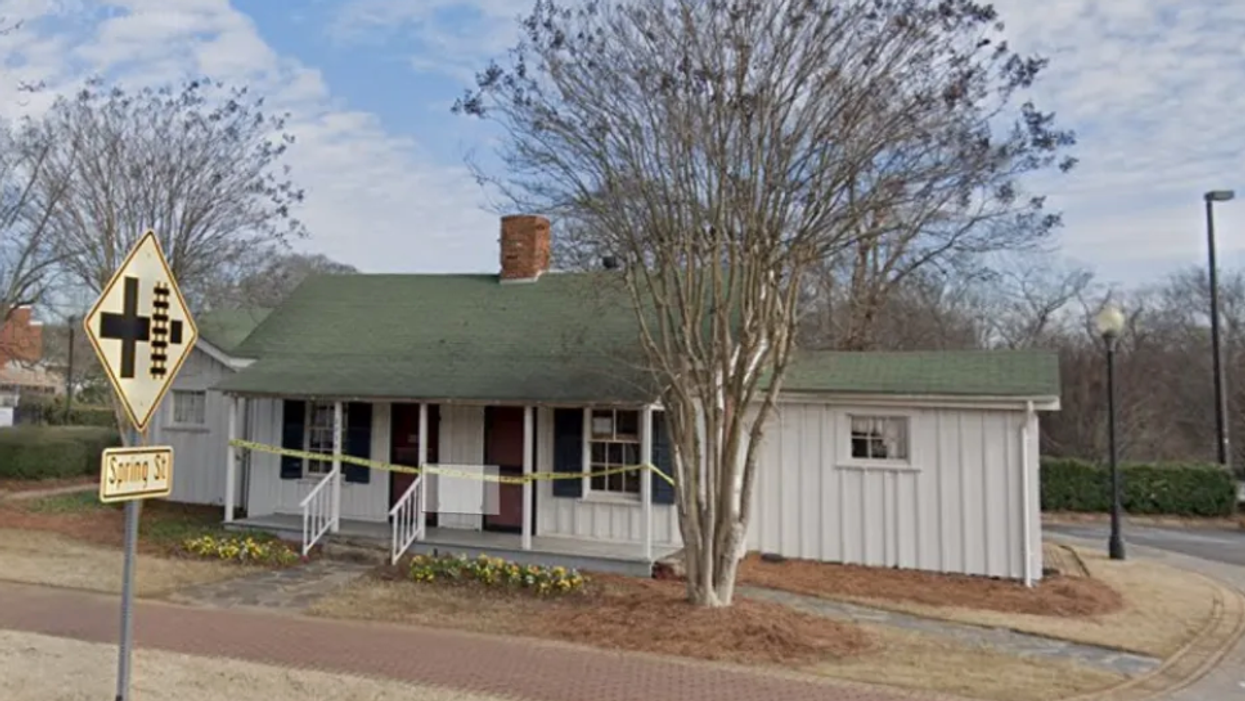Georgia town divided over what to do with defunct restaurant that 'romanticized the region’s plantation history'


For decades Aunt Fanny’s Cabin, a restaurant known as much for its Southern menu as for its depiction of plantation life and racist imagery, was a favorite haunt of celebrities, tourists and local residents in Smyrna, Ga. While Aunt Fanny's Cabin shut down 30 years ago, it still is remembered by former employees for its practice of having young Black waiters serve the eatery's mostly white patrons while wearing yoke-like wooden menu boards hung around their necks.
The shuttered building, which sits along a stretch of Atlanta Road in Smyrna, is now at the center of an unlikely debate about how a Southern community can move on from its painful past without forgetting its history in the process. As the New York Times reports, "City officials recently proposed tearing the building down, arguing that it had fallen into such disrepair that fixing it would be too costly. The place had been a source of civic discomfort for years, but among those pushing hardest to save it were members of Smyrna’s Black community, who argued that demolishing the cabin would erase a critical part of local Black history. Last week, a decision to preserve Aunt Fanny’s Cabin but move it to a nearby farm gave supporters a chance to wrestle with how best to preserve the complicated story of the restaurant — and of Ms. Williams herself."
A local newspaper once described Aunt Fanny, full name Fanny Williams, who worked for the white family who owned the business, as “a famous colored mammy.”
“The city is embarrassed and instead of figuring out how to honor Fanny Williams, they want to erase her,” said Maryline Blackburn, a leader of the Coalition to Save Aunt Fanny’s Cabin, a group of Black and white residents that worked to preserve the building. “Those images of the boys with the menus are atrocious. However, that is a part of history. You can’t change it. You can’t take it away, sweep it under a rug to make yourself feel better about it.”
The NYTimes notes: "Aunt Fanny’s Cabin, which was segregated in its early years, operated from 1941 to 1992, serving fried chicken, macaroni and cheese, 'gen-u-wine Smithfield ham' and other regional specialties. Black people worked as cooks, hosts, servers and busboys. Waiters were made to sing for white patrons. The uniforms for female employees included pinafore dresses and head wraps that evoked the era of slavery. It was, for a time, among the best-known restaurants in the Atlanta area and inspired other local restaurants that romanticized the region’s plantation history."
Some former employees have no good memories of the establishment. “It don’t remind me of nothing but racism,” said Roderick McNeal, who worked at Aunt Fanny’s in the summer of 1959. “It’s an old racist’s house, and it’s past time for it to go.”
Lisa Castleberry worked there in the 1970s. She said that simply passing by the now-vacant building regularly reminds her of a painful time in Smyrna’s history. “Now that I’m older, I’m like, ‘Oh man, that was so degrading,’ but it was a job,” said Castleberry, who is 61.
Some want to turn the building into a welcome center, a museum or culinary school for Southern food as a way to honor Williams.
“We have no standing structure that honors our history in Smyrna,” said Shaun Martin, an architect who is Black and has been studying the cabin for years. “Aunt Fanny’s Cabin could be a place where all of Black Smyrnites could be celebrated in a space that is reclaimed to give us the dignity that they stole from us for decades.”